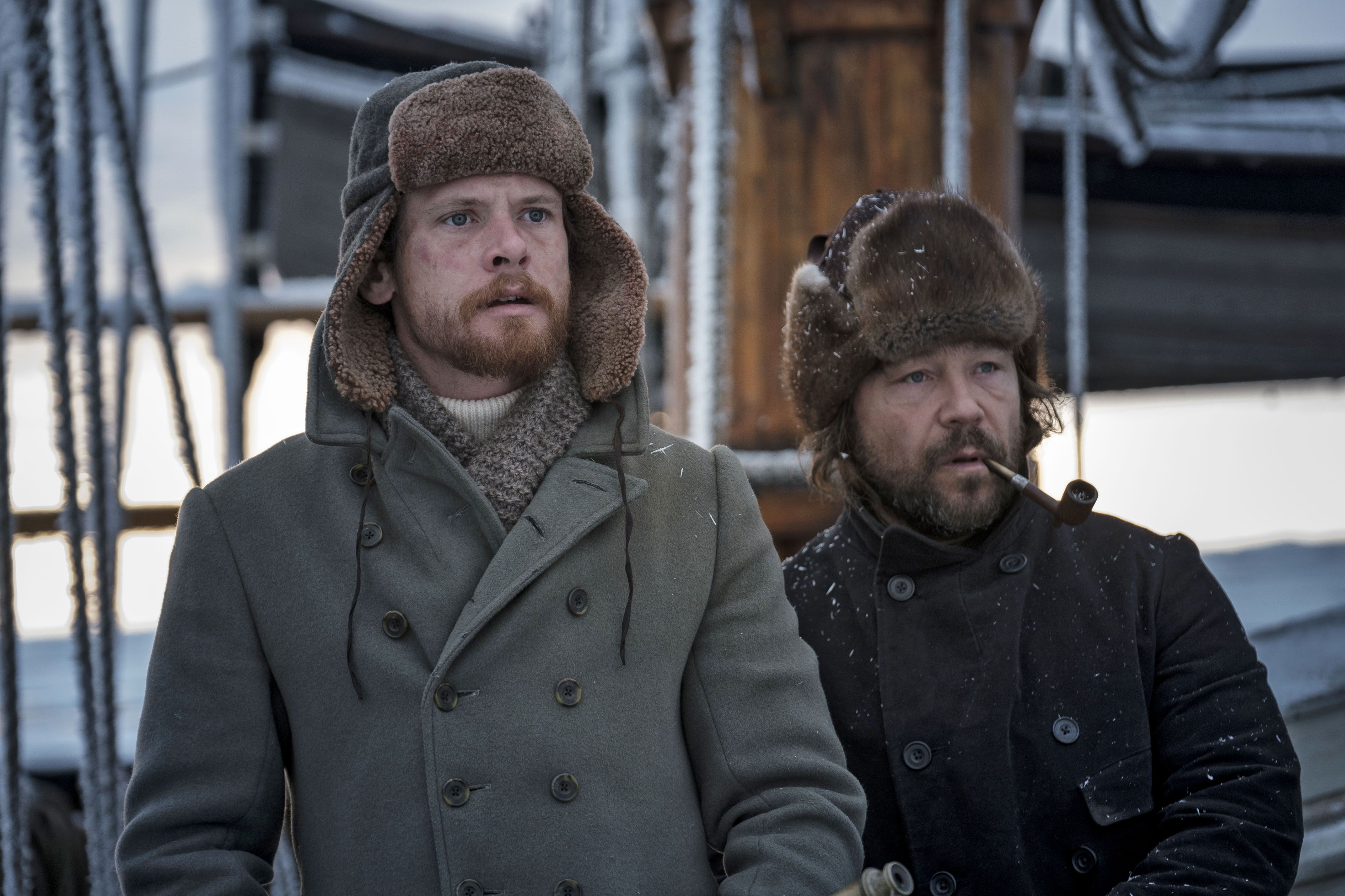The North Water review: Why did the BBC abandon this in the frozen wasteland of Friday night?
This is as straight an adaptation as they come, a TV version that aims to reproduce the book’s claustrophobia and dread, borrowing much of the language

Ian McGuire’s novel the The North Water is not easily forgotten. In unsparing, distinctive prose, laced with brusque humour, a doomed Victorian whaling expedition becomes a vehicle for all the obvious shades of male evil and a few of the more unusual ones, too. It’s a story of greed and blood and lust. The whaler is a floating Nietzschean experiment. Betrayal, thievery and violent death are the rule. Those who succeed learn to embrace it rather than resist.
Andrew Haigh’s five-part adaptation has been keenly anticipated since it was announced, and the result is the treatment the source material deserves. After The Terror, this is the second Victorian sailing-vessel-stuck-in-the-Arctic psychological horror of the year. One more and it will become a genre. The North Water is a place for hard men, so it feels right that the cast includes a triumvirate of British (alright, British and Irish) hard men: Stephen Graham, Jack O’Connell and Colin Farrell. Graham plays Brownlee, the captain of the Volunteer, about to set sail to the Arctic from Hull. It’s a ghoulish place, full of dark alleys and desperate men, and it isn’t much better in 1849.
They are trying times for the industry. Whale oil is being replaced by easier-to-source alternatives such as paraffin. The trip’s instigator, Baxter (Tom Courtenay, with a beard like Father Christmas), has an ulterior motive. Rather than actually hunting for whales, Baxter wants Brownlee to lead the ship to disaster so he can claim the insurance money. It’s nothing personal, Baxter explains. It’s just business.
All the same, to give the impression of a legitimate expedition Brownlee must recruit a crew. One is Jack Sumner (O’Connell), who presents himself as the ship’s surgeon. He seems more clean-cut than the rest of the men, but his secrets aren’t far from the surface. As a soldier in India, he picked up a wounded shin, a laudanum addiction and some other prizes, too. The North Water’s historical subtext is that rapacious imperial capitalism comes with a high price. And on a mission like this, your crewmates will see your true self in no time. It’s not long before Sumner’s story comes under pressure.
His counterpoint is Hugo Drax, the villain of the year, a dark and ragged bull elephant of a man, broad and bearded and clad in a black cloak. Where the others plot and dissemble, Drax acts. He fights, eats, drinks, as he wants. His obscure malice is a potent vessel for Farrell, who relishes the chance to play a figure so unencumbered by the Christian virtues and manages not to ham it up to oblivion. At the end of the first episode Drax embarks on a one-man seal rampage, a particularly bloody sequence. Animals, men, women: they’re all the same to him.
“I don’t think it’s money that motivates Henry Drax,” Brownlee says, watching as his employee swings his axe into seal skulls.
“Then what?” says Sumner.
“I don’t wish to know,” Brownlee says. Perhaps because he knows the truth, the scariest answer of all, is that nothing motivates Drax; he simply is. In Brownlee’s words, whalers are “refugees from civilisation”. They may be running away from their problems, but they are also running away from society’s comforts and protections, as limited as they might be in Victorian England. Out on the ice, the law is what you make of it.
This is as straight an adaptation as they come, a TV version that aims to reproduce the book’s claustrophobia and dread, borrowing much of the language. Where there are tweaks or moments of exposition, they are usually subtle. There will be complaints about the lighting levels. At times, The North Water’s crepuscular alleys and passageways make Wolf Hall look like Sex Education. But the gloom is appropriate. This is not a place of honour, as Sumner realises soon after meeting his shipmates. “Maybe it’s only the stupid, the brilliantly stupid, who will inherit the earth,” he writes in his journal. If anyone survives to do so, that is.
Speaking of brilliantly stupid, whose idea was the scheduling? The North Water has a great cast, an expensive boat, a dark and engaging story, and a sinister mood. It ought to be a point of pride. So why has the BBC abandoned it in the frozen wasteland of Friday night? Darkness this well wrought ought to be displayed for all to see. Unlike the passengers on the Volunteer, viewers are unlikely to regret the trip.
Join our commenting forum
Join thought-provoking conversations, follow other Independent readers and see their replies
Comments


Bookmark popover
Removed from bookmarks